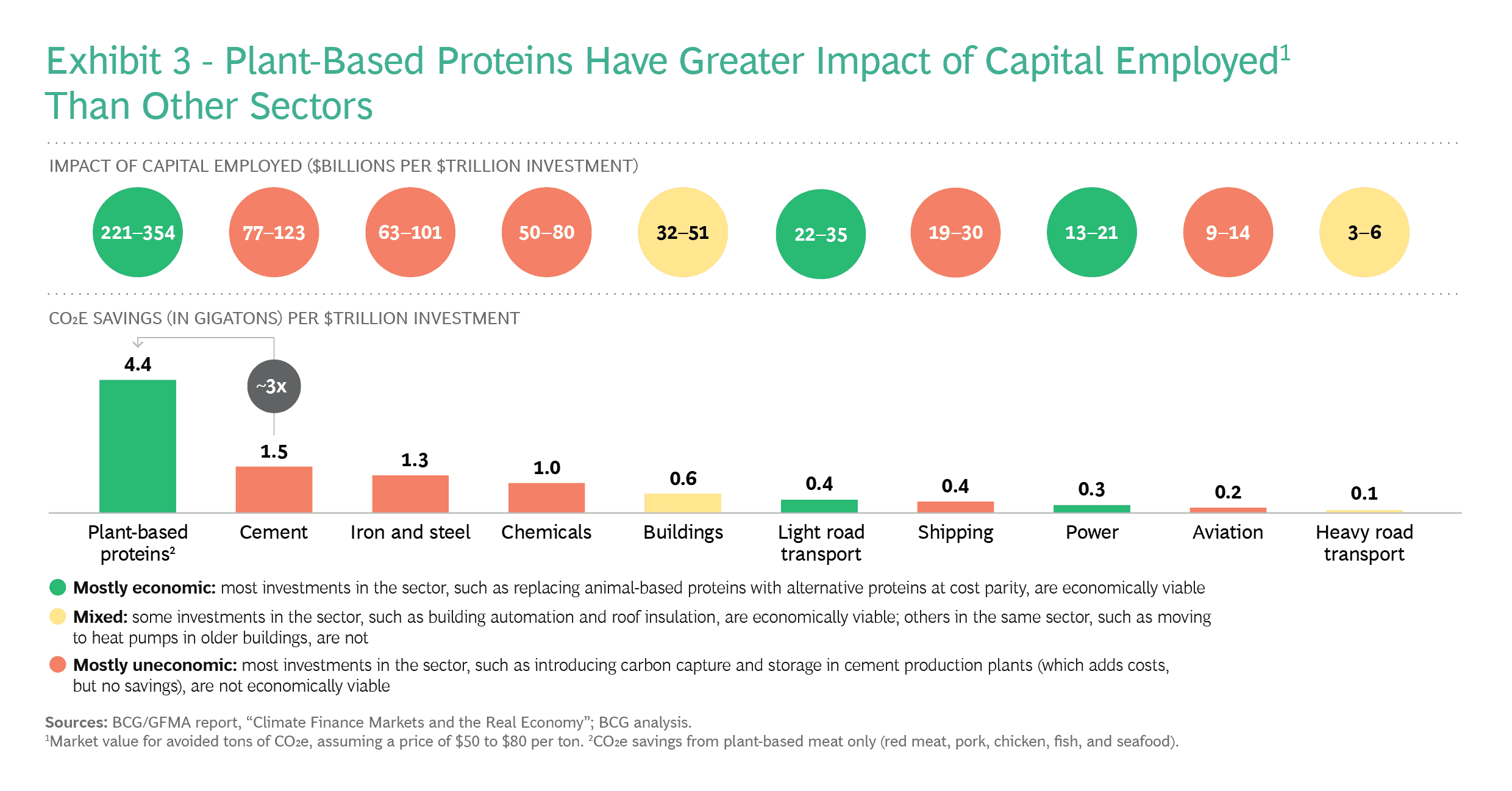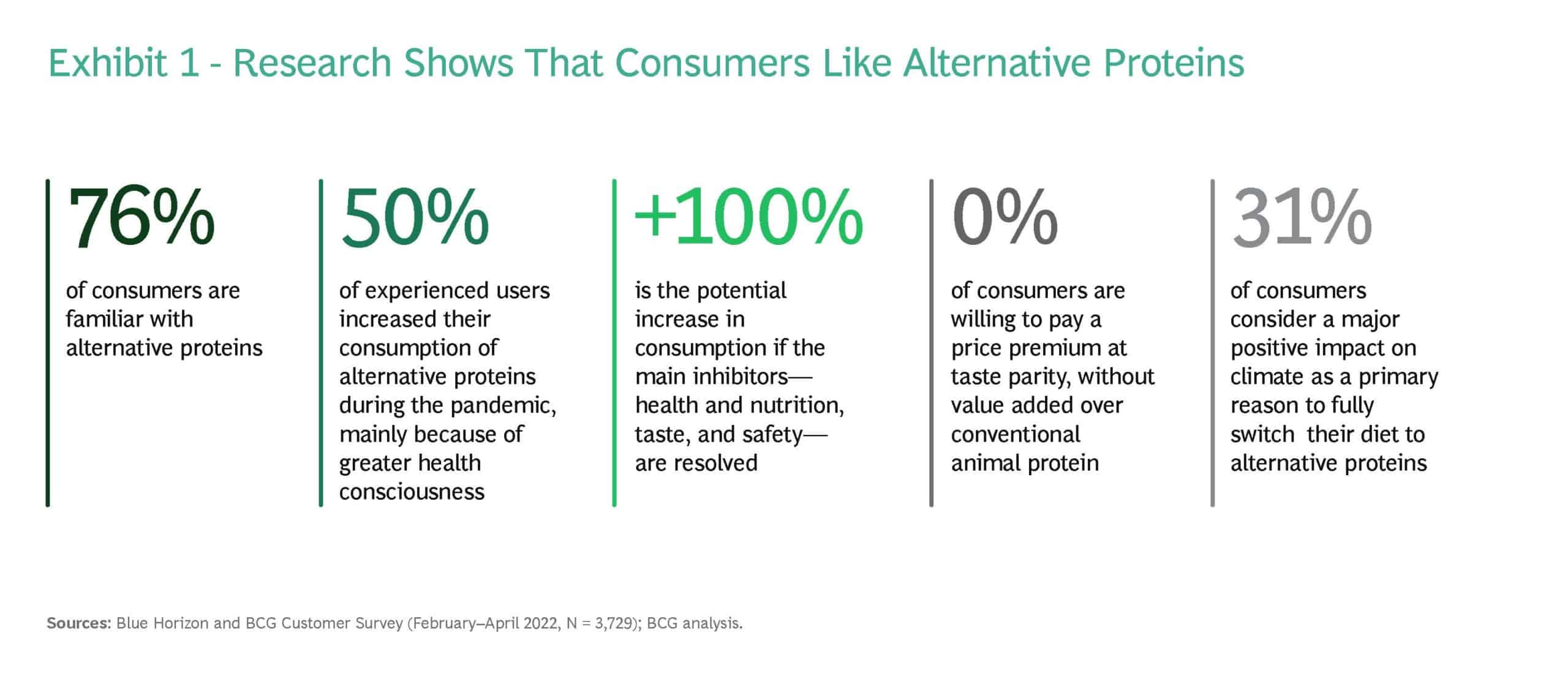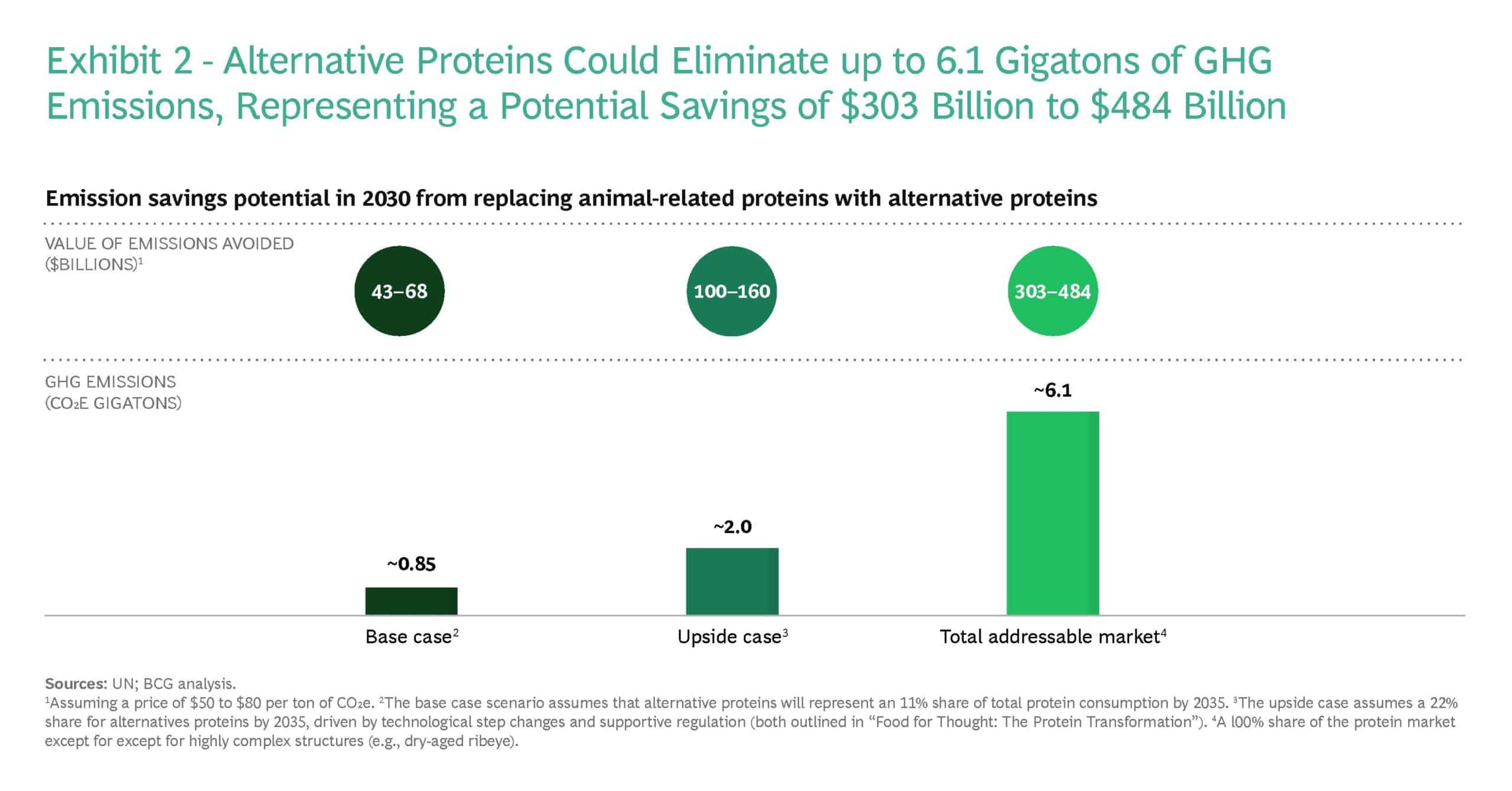A new report published today by BCG and Blue Horizon reveals that investing in plant-based proteins saves the most CO2 – at least twice the positive impact of investments in sustainable cement, iron, steel, chemicals or transport. It also finds that over 30% of consumers would fully switch their diets to alt proteins to make a positive climate impact.
“If we reach 11% market penetration by 2035, we could save more carbon emissions than decarbonizing 95% of the aviation sector”
The first report from BCG and Blue Horizon as published last year, titled Food for Thought, posited that Europe and North America could reach “peak meat” by 2025, from when the consumption of animal protein will be in decline. The study went on to be a widely-cited industry standard on the future of alt protein.

Alt protein shift as most efficient and high impact solution
This second report is a first-of-its-kind multi-market survey of alt proteins that studies the sustainability of foods. With 25% of global greenhouse gas emissions caused by the food value chain, the shift to alternative proteins could be the most capital-efficient and high-impact solution to addressing the climate crisis, according to the report.
The report, The Untapped Climate Opportunity in Alternative Proteins, surveyed over 3,700 consumers in seven countries (China, France, Germany, Spain, the United Arab Emirates, the United Kingdom, and the United States). Three-quarters of the respondents said that health was their main motivation while, encouragingly, over 30% said they would be prepared to fully switch their diets to alt proteins if it were to positively impact the climate.

Nine out of ten have enjoyed alt protein
Across all markets assessed, 76% of consumers responded that they are aware of the category, and roughly nine out of ten enjoyed some alt protein products that they have tried. While consumers in China and Germany are the most willing to pay close to parity, no consumer in any region is willing to pay a premium for alt proteins that equal meat in terms of taste, texture, and nutrition—a price premium requires value add, according to the researchers.
“Nearly one in three people across the world are plagued by food insecurity. Coupled with the impact of the continued geopolitical crises on the supply chain and food prices, there is immense pressure on the global food system,” says Ben Morach, a BCG managing director and partner.
“Pivoting away from animal-based proteins will lead to shorter, more resilient, and potentially more local supply chains. Widespread adoption of alternative proteins can remove the risk of supply chain disruptions and play a critical role in tackling climate change, with consumers playing a key part in propelling this transition.”

Bjoern Witte, CEO of Blue Horizon, adds: “The products consumers are seeing on the shelves today will be followed by a wave of cleaner, healthier, and tastier alternative proteins, as technology allows for increasing innovation. We’ve seen the fast-paced development of these technologies in our own portfolio as well as the wider food-tech industry, leading to an overall better consumer product range. This is great news for today’s consumers, but we’re just at the beginning, really.
“The positive impact is absolutely massive, and secular drivers have never been stronger—the time to invest is now.”
“Future generations will benefit greatly from the demonstrable impact this will have on the environment, as shown through our analysis of climate data. This is the second report from BCG and Blue Horizon confirming that protein transformation is the most capital-efficient way to avoid emissions and deliver Impact of Capital Employed (IoCETM). If we reach 11% market penetration by 2035, which is our goal, we could save more carbon emissions than decarbonizing 95% of the aviation sector. The positive impact is absolutely massive, and secular drivers have never been stronger—the time to invest is now.”





